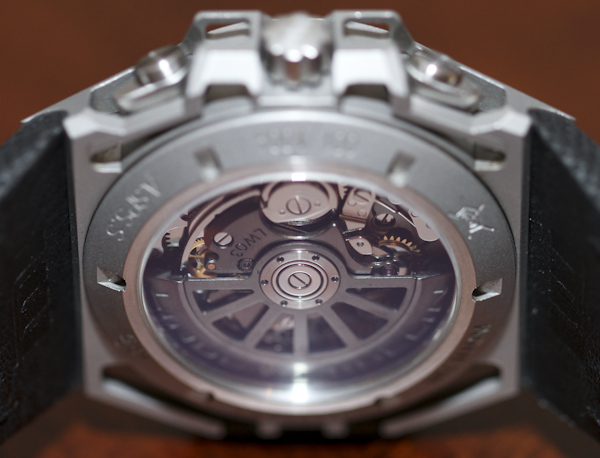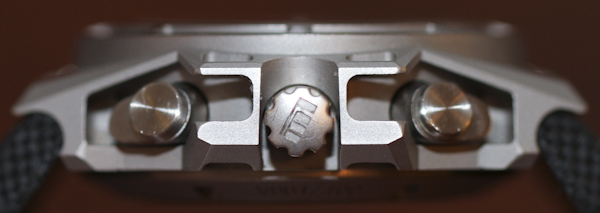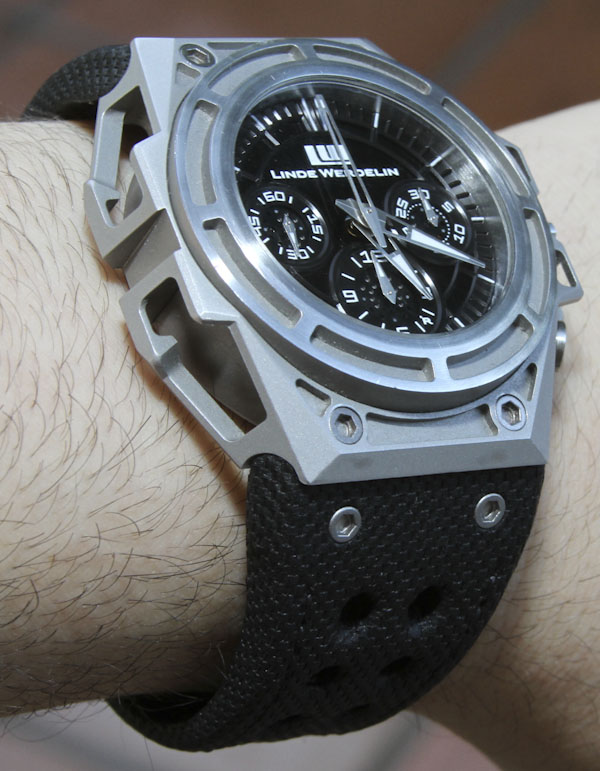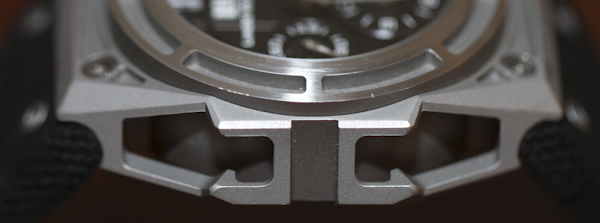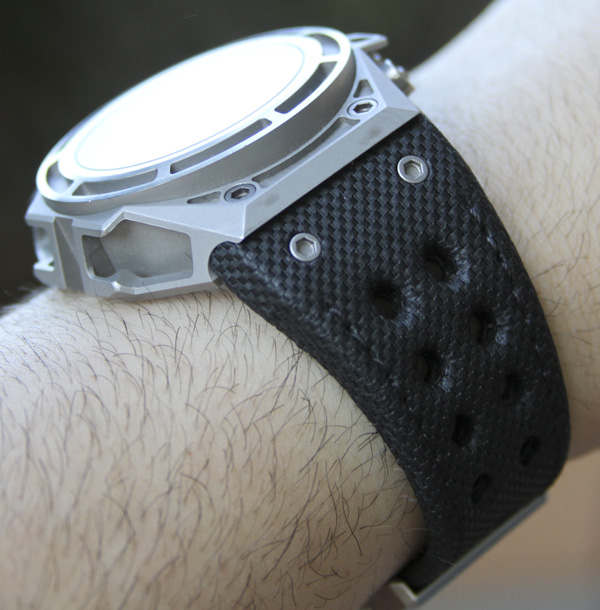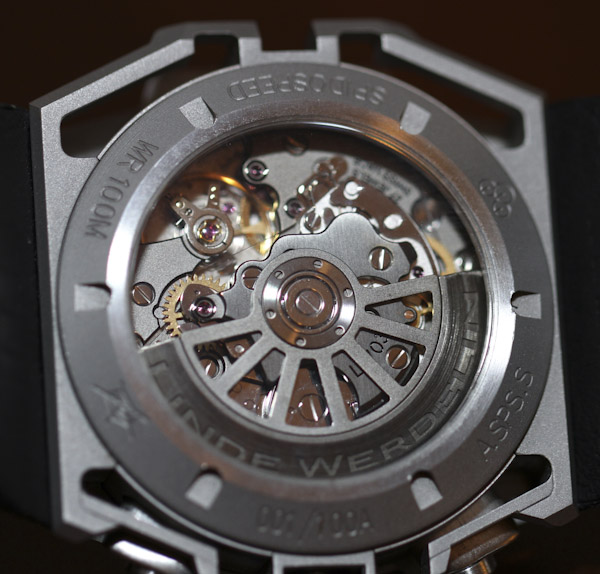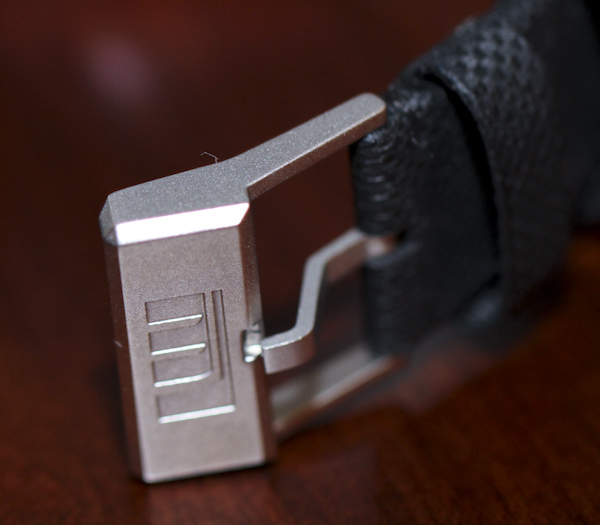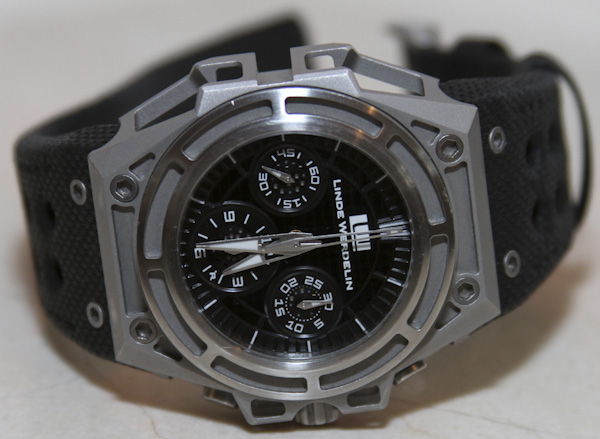
Linde Werdelin put a lot of time and effort into the release of their first chronograph model. I am pretty sure that the team spend a lot of time discussing the right movement, dial design, and other features of their new chronograph timepiece. Why so much effort? Whether you believe it or not chronograph models make up the bulk on non-diver sport watches sold and produced. Having a strong chronograph model in any collection is very important for a watch brand’s strength in the sport watch market. That is of particular importance to a brand like Linde Werdelin that pretty only produces sport watches.
The movement they finally decided to settle on is the Concepto 2251 automatic chronograph. Likely based on some ETA architecture, the Concepto movement features a slick design and some modern looking finishing on all the bridge surface. The movement presentation is made complete by a custom skeletonized Linde Werdelin rotor. On the dial you’ll notice that the chronograph measures 12 hours and offers a tri-compax subdial layout. No date is offered on this dial design.
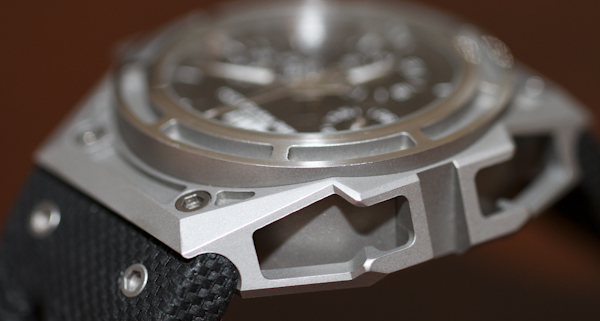
The SpidoSpeed Chronograph case design is based on both the original Linde Werdelin case and the SpidoLite (reviewed here). The SpidoLite introduced the brands skeletonized case concept. That model was in titanium while the SpidoSpeed is steel for now. There are DLC black coated versions as well as this model in a sandblasted finish. The case is 44mm wide and sits large but comfortably on the wrist.
As it must hold a larger chronograph movement, the case is a rather thick 15mm. You can see via the diagram here in this article how the case is put together. The middle section and bezel holding the movement is like a barrel with the decorative structure placed around it.
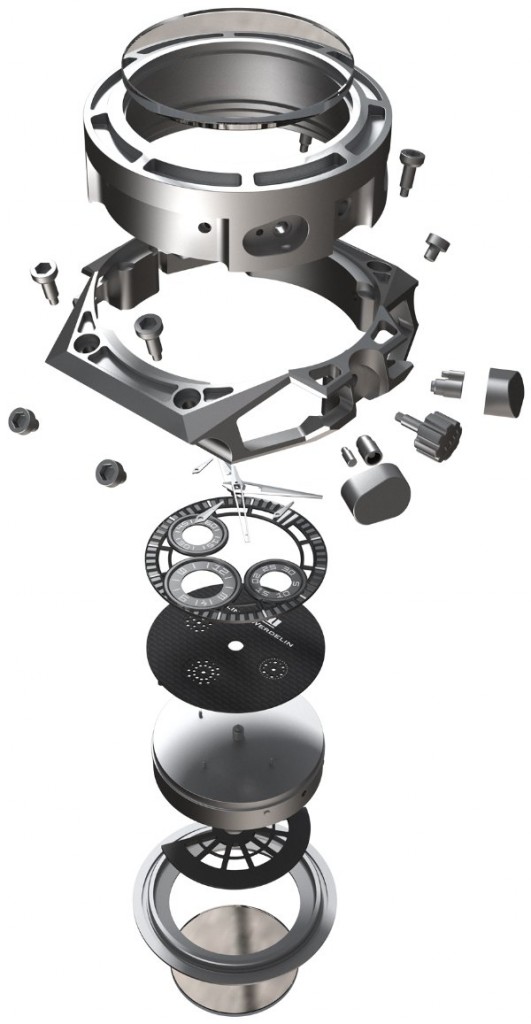

This system works well, but looking through the side case you can rather easily tell how it was done. I would have appreciated a bit more of a seamless integration from the middle to the outer case elements where it looks like one solid structure. I also think that injecting black or dark colored elements into the “open holes” in the case would have called more attention to the skeletonized elements.
There is a bit of a controversial feature in the case design that relates to the chronograph pushers. I wouldn’t have mentioned this unless it has been a topic of conversation among collectors. The original SpidoSpeed designs included unique chronograph pushers that sat more flush with the case design. These neat looking pushers suffered however from being difficult to press once the prototypes were produced and tested by the team members.
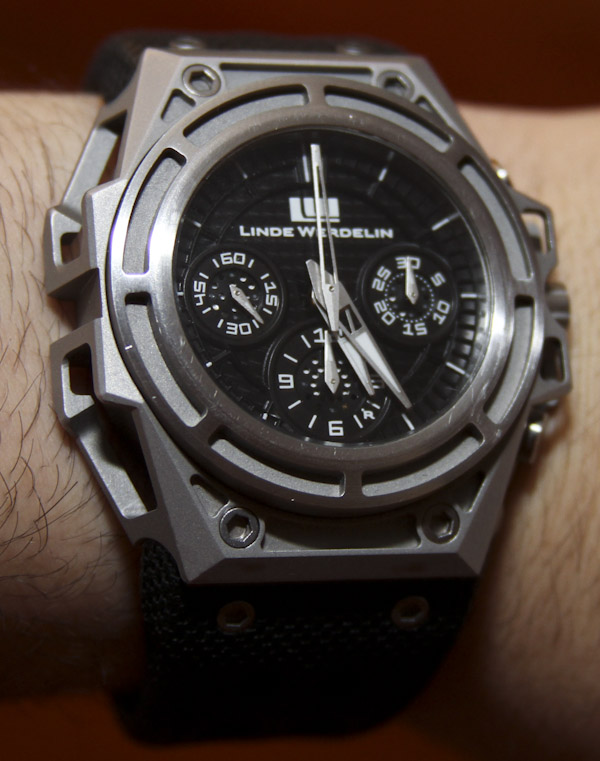

The fix seemed to be the addition of not larger pushers but rather those with extensions on them. This allows for easier operation of the chronograph, but the newer pushers unfortunately aren’t as attractive as the original ones. It isn’t a big deal and I am sure Linde Werdelin spent a fair amount of time concerned with the right fix. I have a feeling that in the future this element might be redesigned yet again.
The dial design is a highlight of the watch. It looks good and is also legible. The textures and small skeletonized parts are attractive, and the indicators are all easy to see. It is very Linde Werdelin in design and feels like what a chronograph from them would feel like. Color variations and such on the dial are sure to come. You can see the applied luminant, and thankfully it is placed on all of the hands.
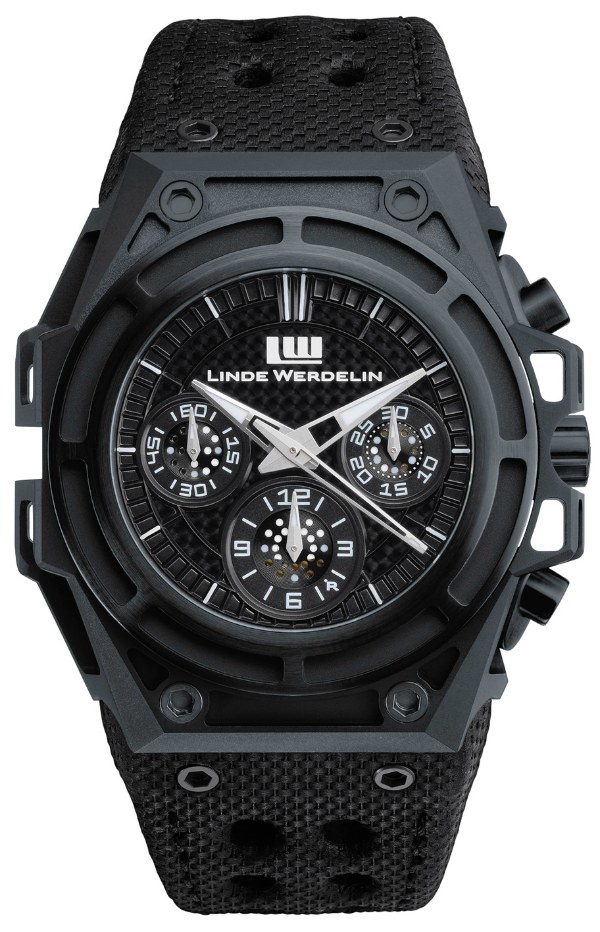

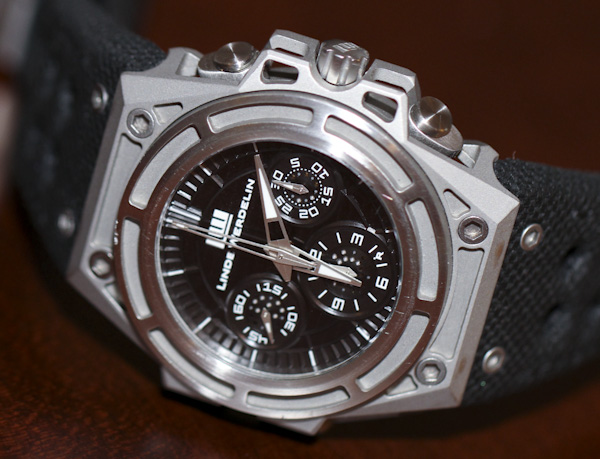
Attached to the watch is a tapered textile strap with portholes. It would look good with a rubber strap as well. I really do love most of Linde Werdelin’s straps and they also benefit from being comfortable. While a boutique brand with only limited edition watches, no doubt Linde Werdelin timepieces are on the pricier side. I feel that the uniqueness is merited however if you can budget for it. Limited to 100 pieces per model, this steel version of the Linde Werdelin SpidoSeepd Chronograph watch is priced at 11,760 euros.

